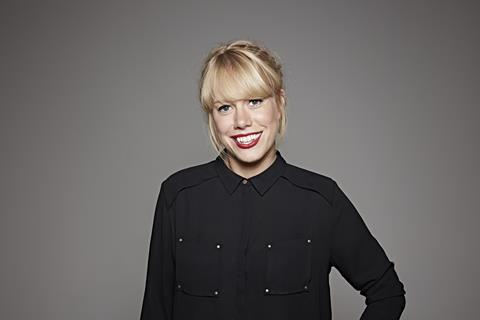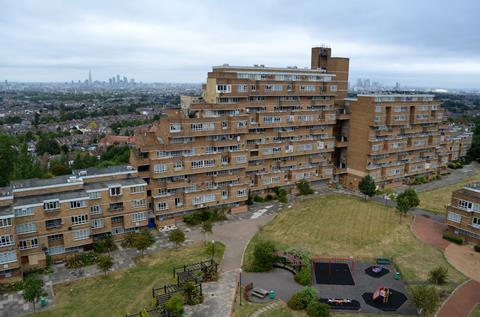The firmŌĆÖs co-founder and director on growing up in Manchester, inequality in the industry and the importance of collaboration and taking a break

Why did you choose construction as a career?
Growing up in Manchester, I loved going on the tram to the city centre, particularly Castlefield. The history of that area is amazing. Castlefield was the site of the Roman fort of Mancunium and, in the 19th century, became the meeting point of the Rochdale and the Bridgewater canals. Then it was overlaid with a network of railway lines and multi-arch viaducts. Now it is a mixture of all sorts of uses including an outdoor music venue. Experiencing an area like that when you are a kid ŌĆō canals, cobbles, warehouses, viaducts ŌĆō makes you realise how complex and amazing cities can be. So, while my friends were drawing still life and landscapes for art A-level, I was in the city centre, drawing buildings and bridges. This led me to study architecture at university and a career in construction.
What are you most proud of in your career to date?
Establishing IF_DO, my architecture practice with Al Scott and Thomas Bryans. We were friends at university and were all working as architects in London when we decided to join forces. We had never worked together in practice before, and we didnŌĆÖt have any clients, but we had a shared ambition. We wanted to create architecture projects which did more, by putting people and the environment at the heart of what we do.
Thankfully it was worth taking the risk. IF_DO is eight years old now and we have a portfolio of projects which really resonate with our vision ŌĆō from Meanwhile community hubs and permanent community centres to residential projects of all scales. We have just finished a primary substation, which is one of the biggest public artworks in the UK. IŌĆÖm really proud of how far we have come.
What has been the biggest challenge of your career to date?
Creating IF_DO! ║┌Č┤╔ńŪ° a company from scratch (and keeping it going) is a huge challenge. They donŌĆÖt teach you business at architecture schoolŌĆ” But we love a challenge and I feel I am learning new things all the time, which is great.
If you could change one thing about the industry, what would it be?
There is still a lot of inequality and a lack of diversity in the industry, particularly in senior leadership positions. I am a founding member of Part W, an action group calling for gender equity in the built environment. We campaign to highlight the contribution of women and call out discrimination, but there is still a long way to go.
![]()
What is the most helpful advice that you have been given?
ŌĆ£Go for a run.ŌĆØ ItŌĆÖs easy to tell people to look after themselves and take a break, and then not apply the same advice to yourself. Taking time to go for a run a few times a week makes me feel less stressed and so much more energised.
Name your favourite building in the world?
One of the most beautiful buildings I have ever visited is the Niter├│i Contemporary Art Museum in Rio de Janeiro by Oscar Niemeyer. It is like an incredible white flying saucer resting on a cliff with a long swirling red-carpeted ramp sweeping up to it. Niemeyer described it as a ŌĆ£flower growing from the rocksŌĆØ. It is breathtakingly beautiful.
Much closer to home, my favourite building is the Whitworth Gallery in Manchester. The new extension is amazing and I love going there with my family to hang out in the caf├®. It feels like you are sitting in the canopy of the surrounding trees.
Which famous building do you wish you had worked on?
I love DawsonŌĆÖs Heights ŌĆō a social housing estate in Dulwich, south London, by Kate Macintosh for Southwark council. The estate is built on top of a spoil tip from the creation of a nearby railway line and looks a bit like a ziggurat. It was designed in such a way that two-thirds of the almost 300 flats have views in both directions, including towards central London. I am not sure if it is famous, but it should be!

Who do you most admire in the construction industry?
The American-Canadian author Jane Jacobs (1916-2006). She was a grassroots activist who worked tirelessly to protect neighbourhoods from slum clearance, and without any formal training became a leading figure in urban planning. She argued that urban renewal did not always respect the needs of city-dwellers. The quote ŌĆ£cities have the capability of providing something for everybody, only because, and only when, they are created by everybodyŌĆØ is one that always stays with me.
What is it like being you (and doing your job)?
Busy! But also fun and super interesting. Being an architect is a really great job! I am based in Manchester but travel to London weekly by train to spend time with our team in our studio. When I am not in the studio, I love getting out and about ŌĆō particularly working with our amazing clients and communities to make architecture with a positive impact.
What do you think your best quality is?
My drive and ambition. I try to approach life with a lot of positive energy ŌĆō and I aim high.
What trait do you most dislike in other people?
Kindness is the trait I value most in others, so I really dislike a lack of kindness.
Name three things that you like
Talking Heads, reading to my daughter, red wine.
Early bird or night owl?
Early bird. I have a two-year-old daughter, so it is kind of imposed on me!
What is your favourite food?
Anything ItalianŌĆ” but pizza with olives and capers is the best.
What would your superpower be?
Teleportation would certainly make the journey from Manchester to London quicker!


























No comments yet